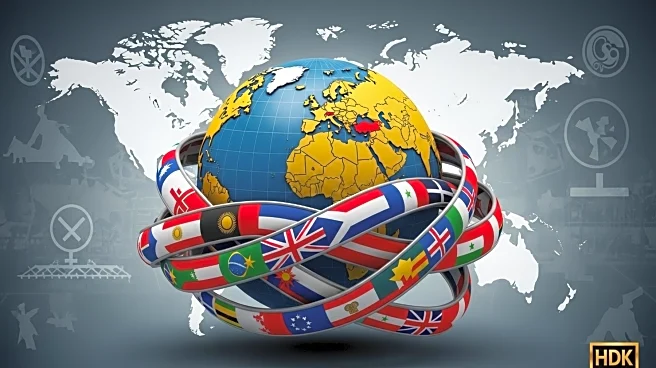What is the story about?
What's Happening?
Former U.S. Ambassador to NATO, Kay Bailey Hutchison, has expressed concerns over the growing impatience among global leaders regarding Russian President Vladimir Putin's actions. Hutchison highlighted the leverage that President Trump and European allies possess to potentially bring Putin to the negotiating table. This sentiment reflects a broader international frustration with Russia's geopolitical maneuvers, which have been a point of contention in diplomatic circles.
Why It's Important?
The warning from Hutchison underscores the critical diplomatic tensions between Russia and Western nations. The ability of President Trump and European allies to influence Putin's decisions could have significant implications for international relations and global security. If successful, negotiations could lead to de-escalation in regions affected by Russian policies, impacting global markets and political stability. Conversely, failure to engage Putin might exacerbate existing conflicts, affecting international alliances and economic conditions.
What's Next?
The next steps involve potential diplomatic engagements aimed at addressing the issues raised by Hutchison. Western leaders may increase pressure on Russia through sanctions or diplomatic channels to encourage negotiations. The outcome of these efforts could shape future international policies and alliances, with stakeholders closely monitoring Russia's response to these diplomatic overtures.
Beyond the Headlines
The situation also raises ethical questions about the balance of power in international diplomacy and the role of Western nations in influencing global politics. Long-term implications could include shifts in geopolitical alliances and the redefinition of international norms regarding state behavior.

















